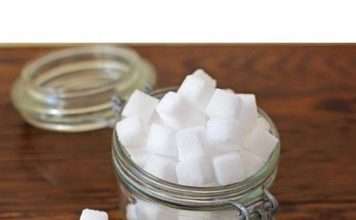Pediatric experts warn that excessive sugar in baby formula can lead to various health issues, including obesity, bloating, musculoskeletal problems, diarrhea, and vomiting. While a moderate amount of sugar is recommended to make food palatable for babies, excessive sugar can have negative effects.
Dr. Stanley Onah, a consultant pediatrician, emphasizes that added sugar in formula is not inherently harmful, but excessive amounts can lead to musculoskeletal disorders, obesity, diabetes, and stomach upset in children.
The consultant mentioned, “I have heard several women say that they don’t put sugar in their babies’ food, especially in pap but that is wrong. You have to put sugar in their food to make it tasty and attractive to them. With moderate sugar in the food, the child will feed well.
“If the food is not tasty, they will reject it and this will now lead to forceful feeding of the child. To the best of my knowledge, sugar is also a source of nutrients to children.
“Also, the baby may be consuming sugar higher than normal in the body. If the baby has an infection, the body will be consuming sugar faster and as a result require sugar in its food,” Onah stated.
According to the consultant pediatrician, some children, particularly those with high energy levels and hyperactivity, may burn off excess sugar through play, and sugar can provide them with energy.
Another expert, Dr. Bunmi Mokuolu, emphasized that moderation is key, as excessive amounts of anything can be harmful. She advised adding sugar and salt in moderation, to taste, rather than overdoing it.
Mokuolu mentioned, “Sugar doesn’t have to be added in excess. It is just like the way we add salt to our food. If you put too much salt, it is bad and you can’t eat that food and when you put too small, the food will be tasteless.
“So, you add salt to taste and the same thing goes for sugar. You add sugar to taste so that the baby will be able to eat the food, but excess of it can cause abdominal bloating, diarrhoea, and vomiting.
“Children are naturally active and some hyperactive. So when you add sugar in excess, they get more hyperactive and I am sure that most parents may not want that. This is because sugar is a source of energy. Increased sugar in the baby’s or children’s food could also be a source of obesity and other undesirable health conditions.
“However, I want to state that sugar on its own does not cause diabetes but there are other factors that could cause diabetes in children. So, I end by saying that sugar should be added to taste to make the food tasty and not bland, while excess is bad.”
